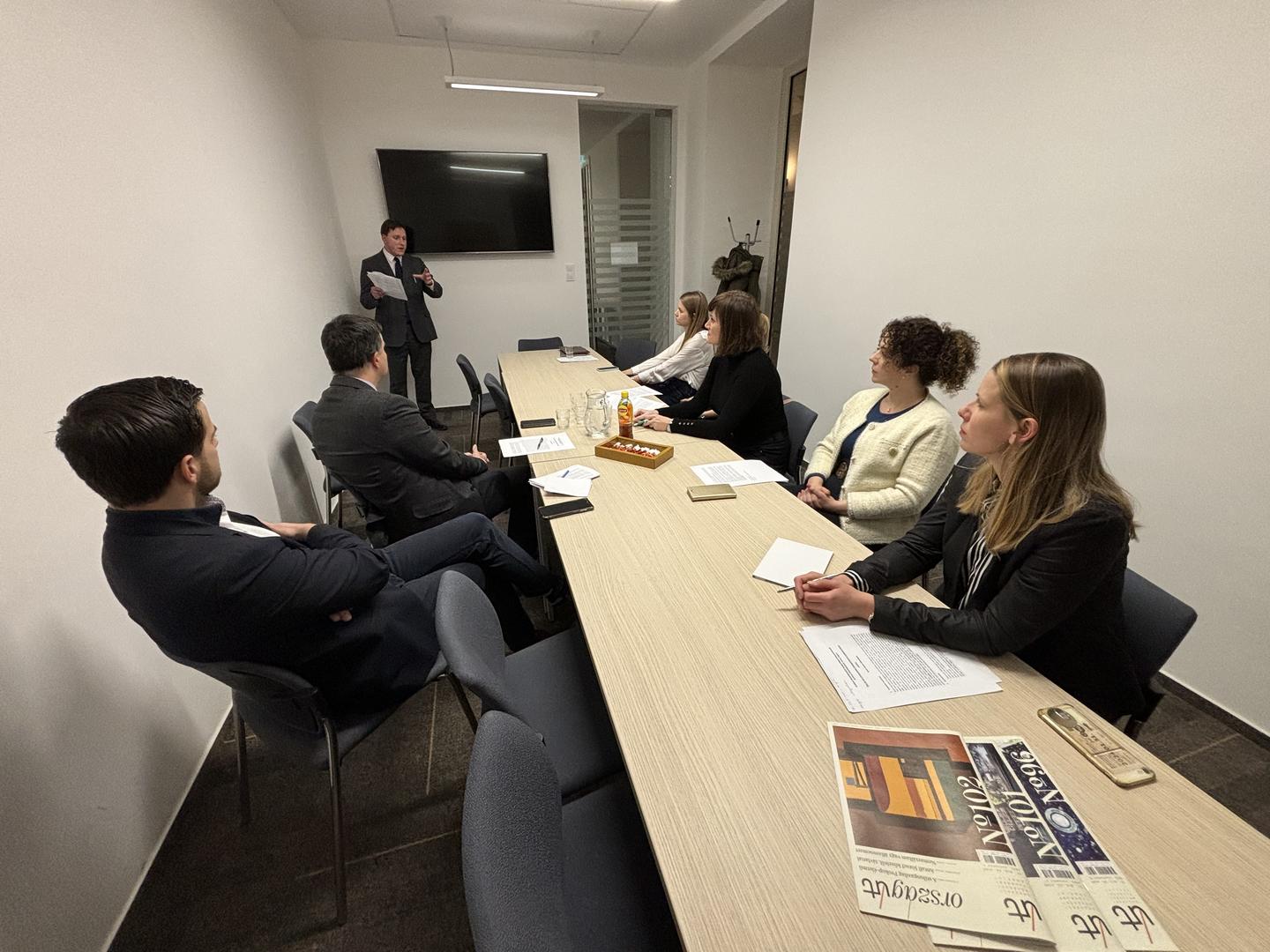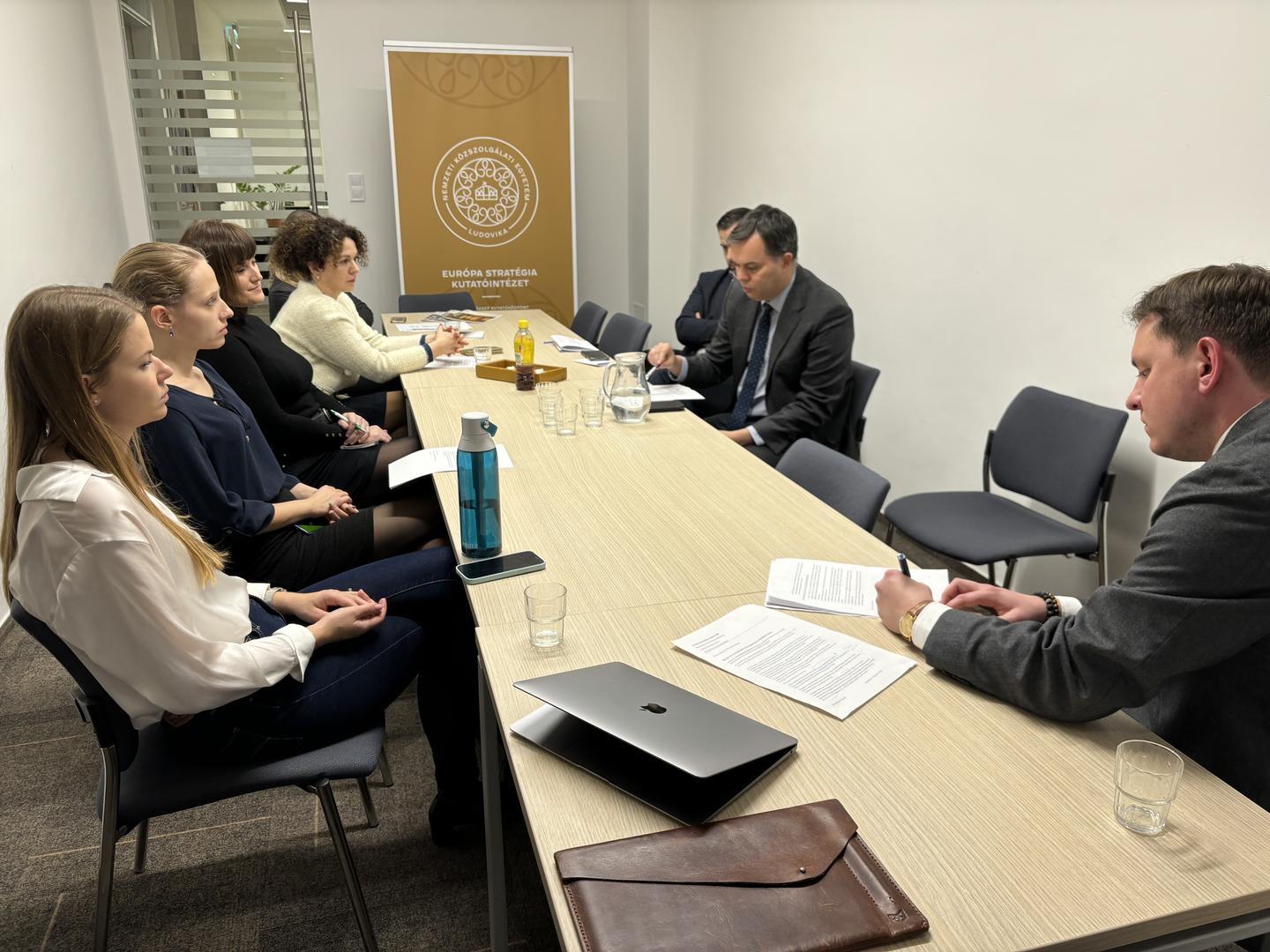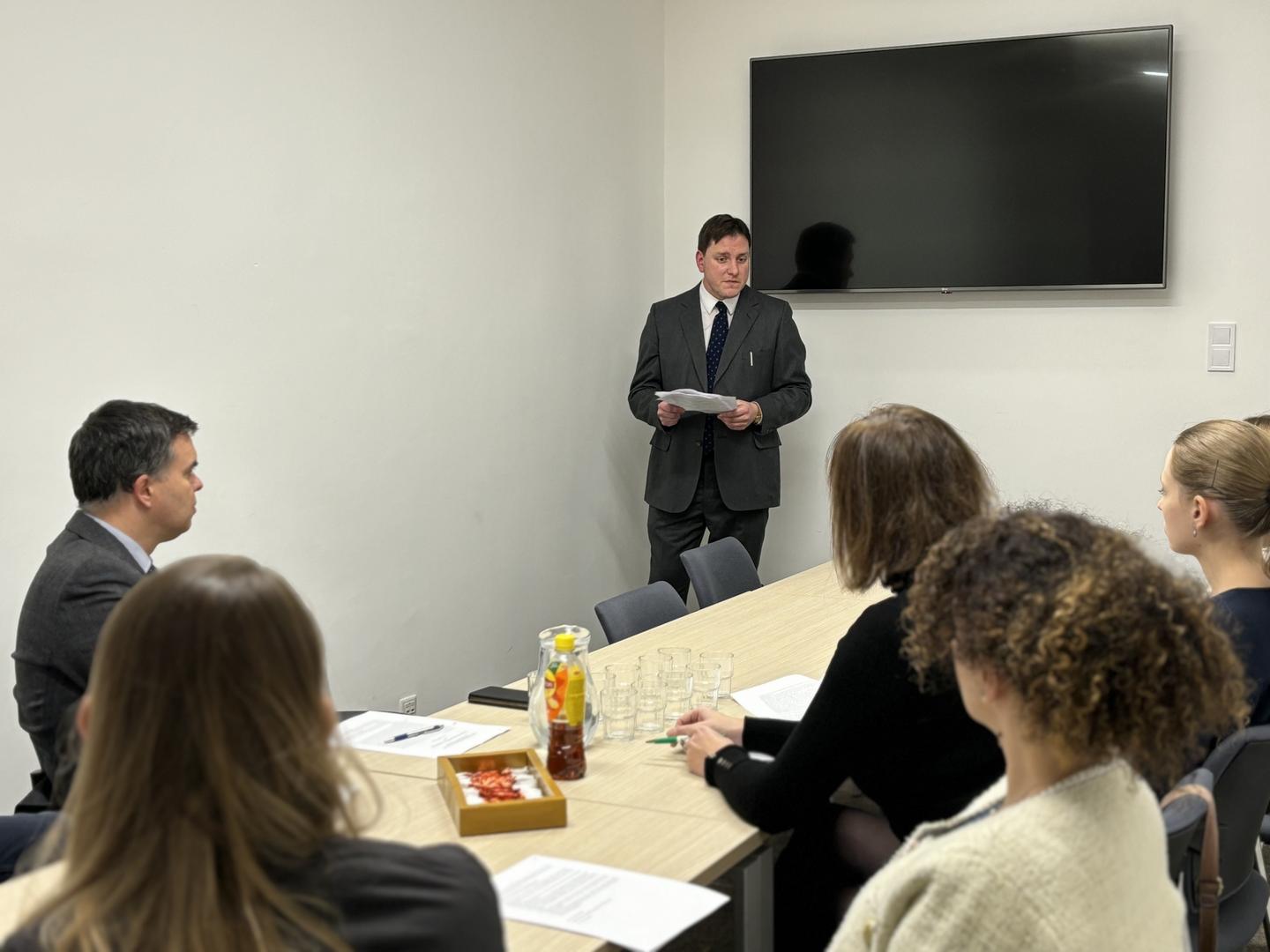On 17th January 2024, a workshop series was organized by the Europe Strategy Research Institute at the Ludovika University of Public Service to discuss enlargement policy in preparation for the 2024 Hungarian EU Presidency.

The Europe Strategy Research Institute is planning a series of workshops starting from September 2023 to prepare for the 2024 Hungarian EU Presidency. During these workshops, researchers will prepare policy papers in their respective policy research areas. These papers will present the opportunities and challenges of different policy fields and reflect on the policy achievements of the 2011 Hungarian Presidency. The policy proposals will be discussed with the Institute's staff and invited experts, including contributions from external experts.

During the workshop, the topic of discussion was the EU enlargement policy. The policy paper was authored by Áron James Miszlivetz, a research fellow at the institute.
Invited policy experts and academics such as, László Dux, Head of the Department for Common Foreign and Security Policy of the Ministry of Foreign Affairs and Trade, and Csaba Rada, Head of the Department for the Western Balkans Department from the Ministry participated, as well as Anna Orosz, a researcher at the Hungarian Institute of Foreign Affairs, and Tímea Zsivity, from the EUStrat Research Institute. Dr. Christopher Walsch, an Associate Professor at the Institute for Global Studies, Corvinus University, provided a written contribution to the policy proposal.
During the presentation, Áron Miszlivetz discussed the main findings of the policy paper. These included the successful completion of Croatia's accession to the EU during the 2011 Hungarian Presidency. The paper also addressed the significant geopolitical challenges present in the EU's neighboring regions, which directly affect the candidate countries of the Western Balkans. It is worth noting that the text does not emphasize any form of enlargement fatigue, rather the importance of initiating a new political and social dialogue, including the Belgrade-Pristina dialogue. Recent Eurobarometer surveys indicate that the EU enjoys significant levels of support in most candidate countries. However, there is a need for practical reforms in areas such as the common market, freedom of work and establishment, and mobile (5G) or transport infrastructure.

The EU's external action faces significant obstacles, including great power rivalry, migration, illegal arms trade and human trafficking. Additionally, it is important to address the historical traumas related to the coexistence of national, religious, and ethnic minorities in order to promote healing and reconciliation in the region. The proposal package suggests the extension of the 'mini-Schengen', effective border management cooperation, and the transfer of knowledge from Central Eastern Europe regarding accession negotiations. Furthermore, there is potential for improved utilization of direct EU funding and attracting European investment in green and digital areas, which could enhance the EU's competitiveness.